Caspian Policy Center Hosted the Third Annual Caspian Business Forum in New York
Recent Articles
Author: Caspian Policy Center
09/19/2022
NEW YORK, NY-- Today, the Caspian Policy Center (CPC) held the third annual Caspian Business Forum in New York with the support of the embassies of Azerbaijan, Georgia, Kazakhstan, Turkey, Uzbekistan, and the Organization of Turkic States.
Efgan Nifti, CEO of the Caspian Policy Center, kick-started the Forum with a welcome speech and mentioned the importance of a shared platform such as the Caspian Business Forum where business leaders, foreign-policy experts, and government officials from the United States and the regional countries can be in a dialogue to explore new economic directions and identify new opportunities.
“CPC is proud to host the third annual Caspian Business Forum to bring together the best minds in business, government, and nonprofits to discuss new business challenges and opportunities for the Caspian region. For the United States, the Caspian region is a place where challenges and opportunities converge,” said Mr. Nifti.
The first panel, moderated by Ambassador (ret.) Richard E. Hoagland, a senior fellow at the Caspian Policy Center, convened keynote speakers from the United States government and Caspian countries to discuss the growing demands for increased energy flow, clearer energy, and greater infrastructure connectivity.
Geoffrey Pyatt, Assistant Secretary for the Bureau of Energy Resources at the Department of State, and Anjali Kaur, Deputy Assistant Administrator at USAID discussed opportunities and challenges for enhancing mutually beneficial engagement in business, trade, and investment between the United States and Greater Caspian region.
A perfect way to kick off my work with the team @EnergyAtState And a nice opportunity to recall how far we’ve come since https://t.co/IHlFuSCyrh
— @geoffpyatt (@geoffpyatt) September 19, 2022
“Much of the discussion at today’s Forum is about how we can work together to meet global energy demand, while simultaneously addressing the devastating effects and the cost of climate change. Energy security and climate change are serious challenges, but they also offer opportunities to strengthen our friendship and claim the economic benefits of new technologies and advances,” said Assistant Secretary Pyatt. “Caspian region’s natural gas is already playing a critical role in ensuring European energy security. The Southern Gas Corridor is a powerful example of this and shows what can be achieved with digital cooperation and technological innovation,” he added.
“At USAID, we see the Caspian region as a source of ideas, culture, and innovation. For more than 30 years, we have supported the success, independence, and prosperity of our partners in Central Asia. We have provided direct assistance to support peace and security, government reforms, economic growth, energy diversification, health and education, and monetary means across this dynamic region,” said Deputy Assistant Administrator Kaur.
H.E. Khazar Ibrahim, Ambassador of Azerbaijan to the United States; Lasha Darsalia, First Deputy Minister of Foreign Affairs of Georgia; Adil Tursunov, Deputy Minister of Foreign Affairs of Kazakhstan; Sedat Önal, Deputy Minister of Foreign Affairs of Türkiye; and Baghdad Amreyev, Secretary-General of the Organization of Turkic States were among the high-level government leaders from the Caspian countries who discussed the U.S. partnership with the Caspian region and potential business opportunities to expand cooperation.
“When we talk about the United States and the Caspian region, I think we need to have a very short snapshot of the history. And that snapshot is quite remarkable,” said Ambassador Ibrahim.
“The challenges caused by the global pandemic made us effectively respond to the shock in private sectors and provide opportunities to businesses, such as development programs offered by the Georgian government,” said Deputy Minister Darsalia.
“Thanks to its size, central location, and performance, Kazakhstan is a crucial part of the trans-Eurasian connectivity. Over the past years, we have invested around 10 billion USD in the development of the infrastructure systems in the region,” said Deputy Minister Tursunov.
“We need closer cooperation in the Caspian Region, especially in regard to energy,” said Deputy Minister Önal.
“It’s our priority is to make sure that the Organization of Turkic States maintains its momentum and contributes to the prosperity of the Turkic world and beyond through cooperation,” said Secretary-General Amreyev.
The second panel, moderated by Margot Ellis, a former USAID executive and senior fellow at CPC, brought together senior executives from the business world who discussed the role of growing business opportunities to enhance the strategic cooperation between the United States and the Caspian region.
Kimberly Reed, Former President and Chair of the Board of Directors of the Export-Import Bank of the United States; Robert Scher, Head of International Affairs of BP America; Samir Karimli, Advisor to the President of SOCAR, and Ambassador (ret.) Robert F. Cekuta, Senior Fellow at the Caspian Policy Center discussed the role of international business and connectivity in sustaining global supply lines in the global energy market and opportunities and challenges for enhancing mutually beneficial engagement in business, trade, and investment in the Greater Caspian Region.
“For business cooperation, BP is usually here to take part because we’ve been doing this for a long time in the Caspian region. I am proud of our partnership and our commitment and being true to our partners,” said Mr. Scher.
Mr. Nifti closed the event by thanking all speakers and guests who shared their perspectives on the importance of emerging and developing strategic partnership opportunities between the United States and the Caspian countries.
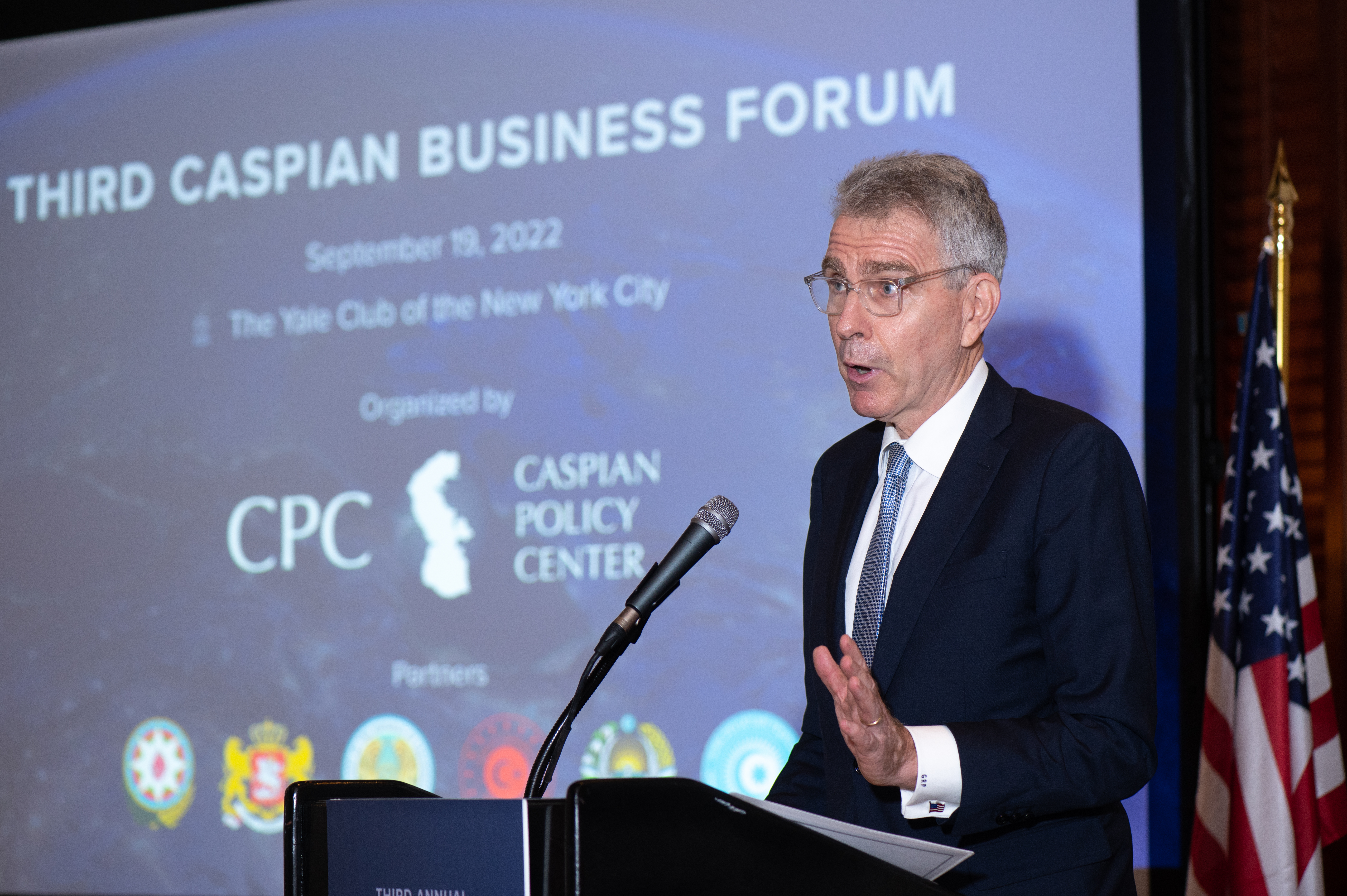
Geoffrey Pyatt, Assistant Secretary for the Bureau of Energy Resources at the Department of State
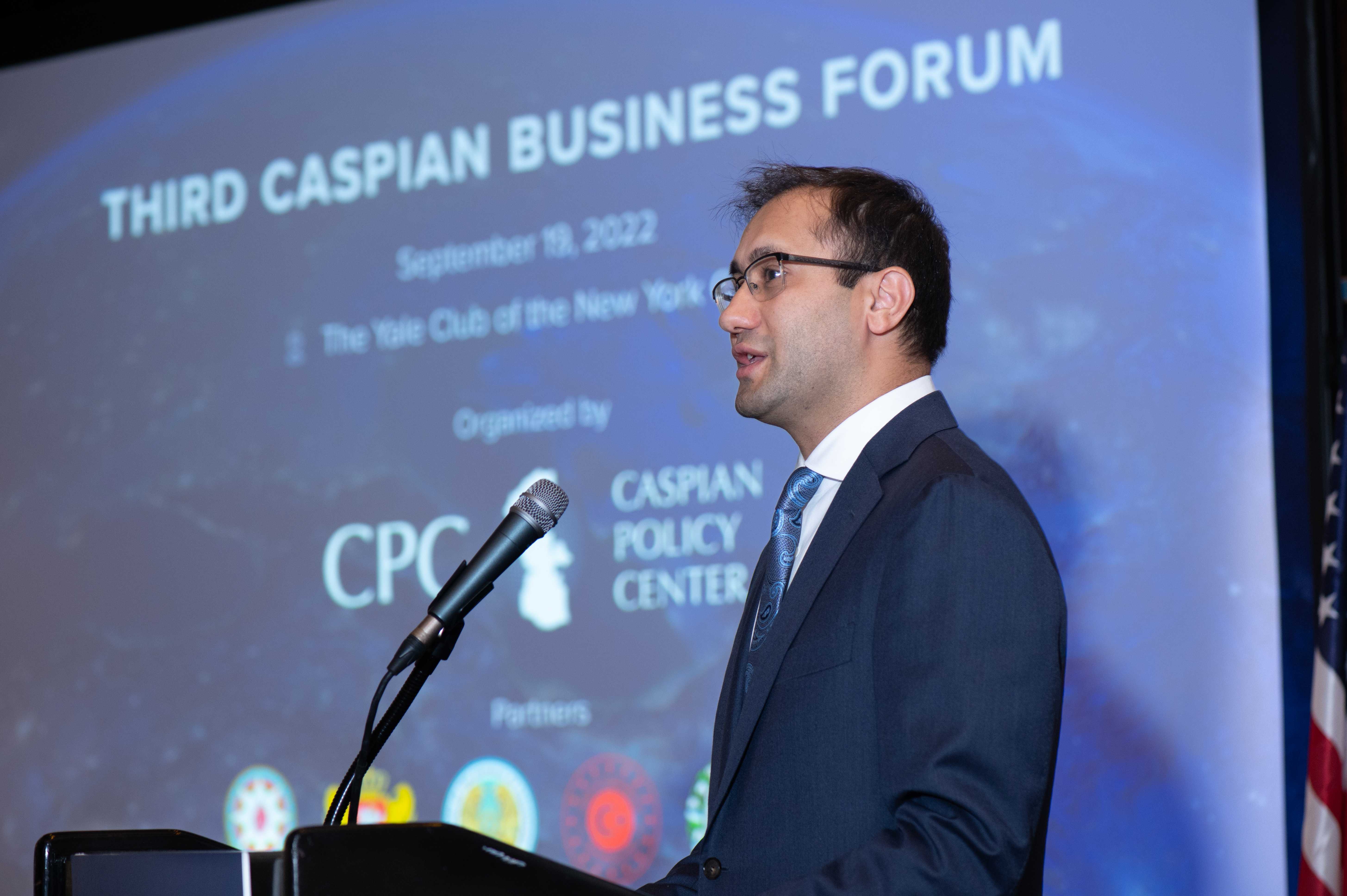
Efgan Nifti, CEO of the Caspian Policy Center
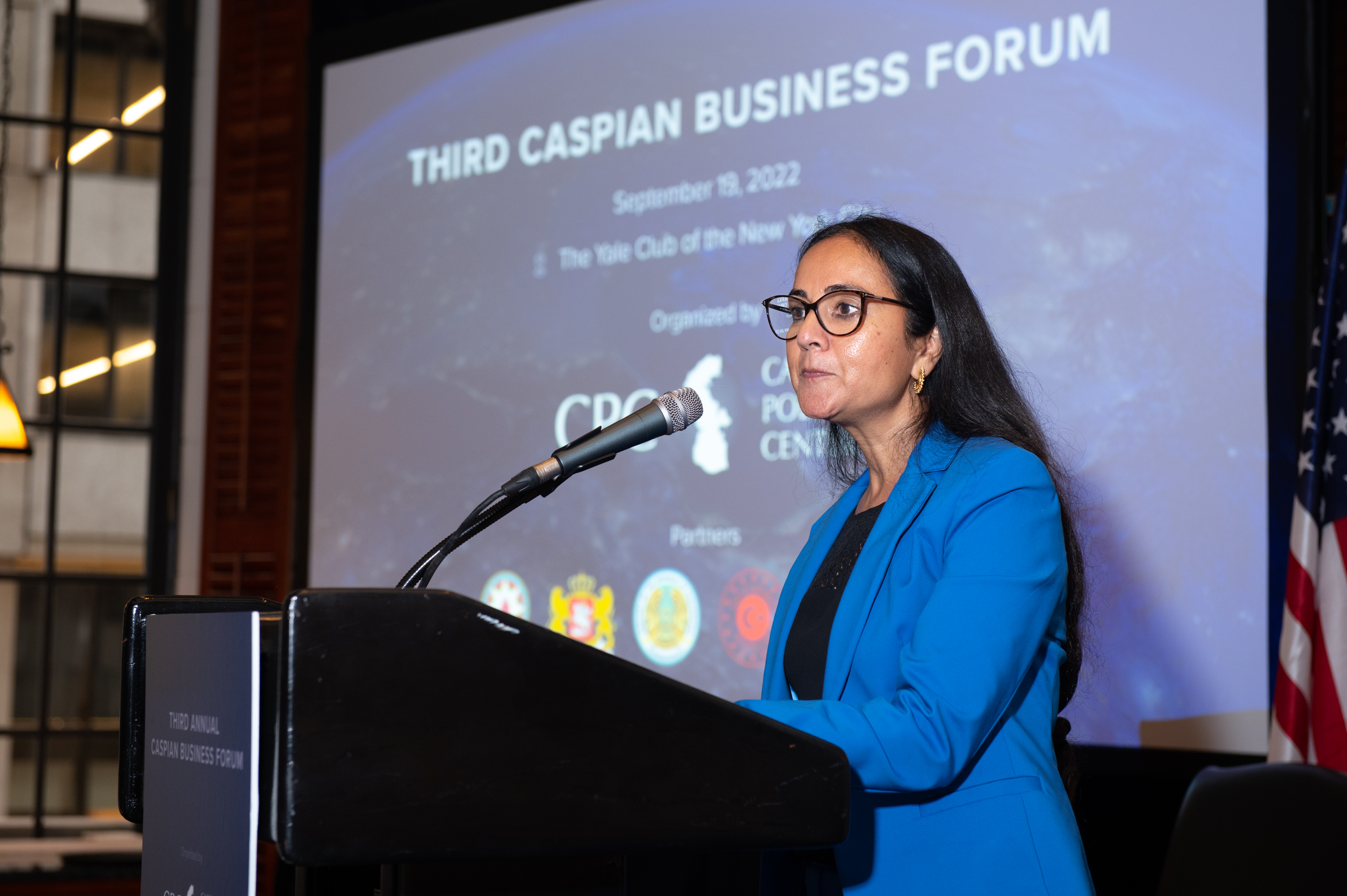
Anjali Kaur, Deputy Assistant Administrator at USAID
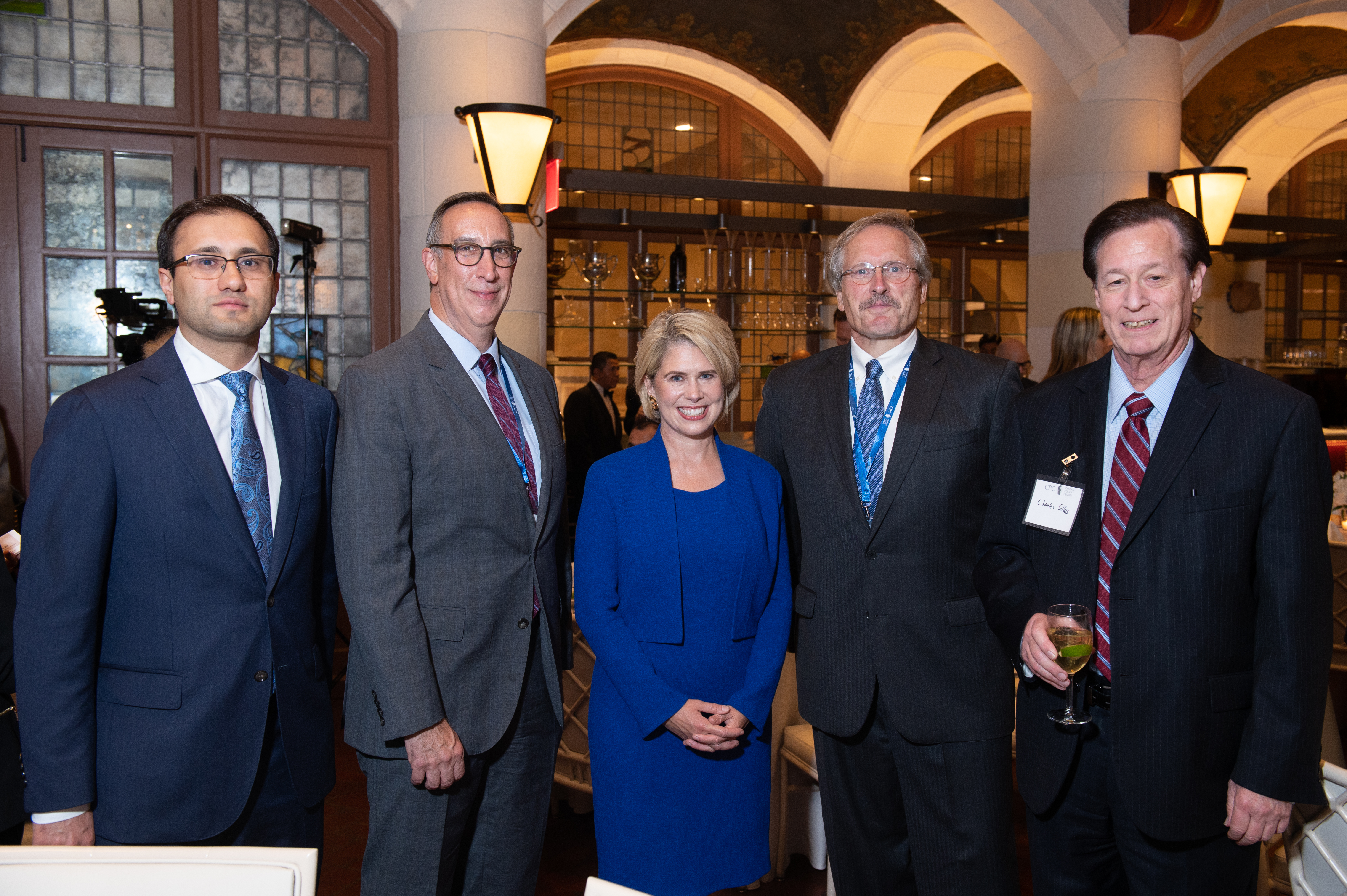
From left to right: Efgan Nifti, CEO of the Caspian Policy Center; Robert Scher, Head of International Affairs of BP America; Kimberly Reed, Former President and Chair of the Board of Directors of the Export-Import Bank of the United States; and Ambassador (ret.) Robert F. Cekuta, Senior Fellow at the Caspian Policy Center
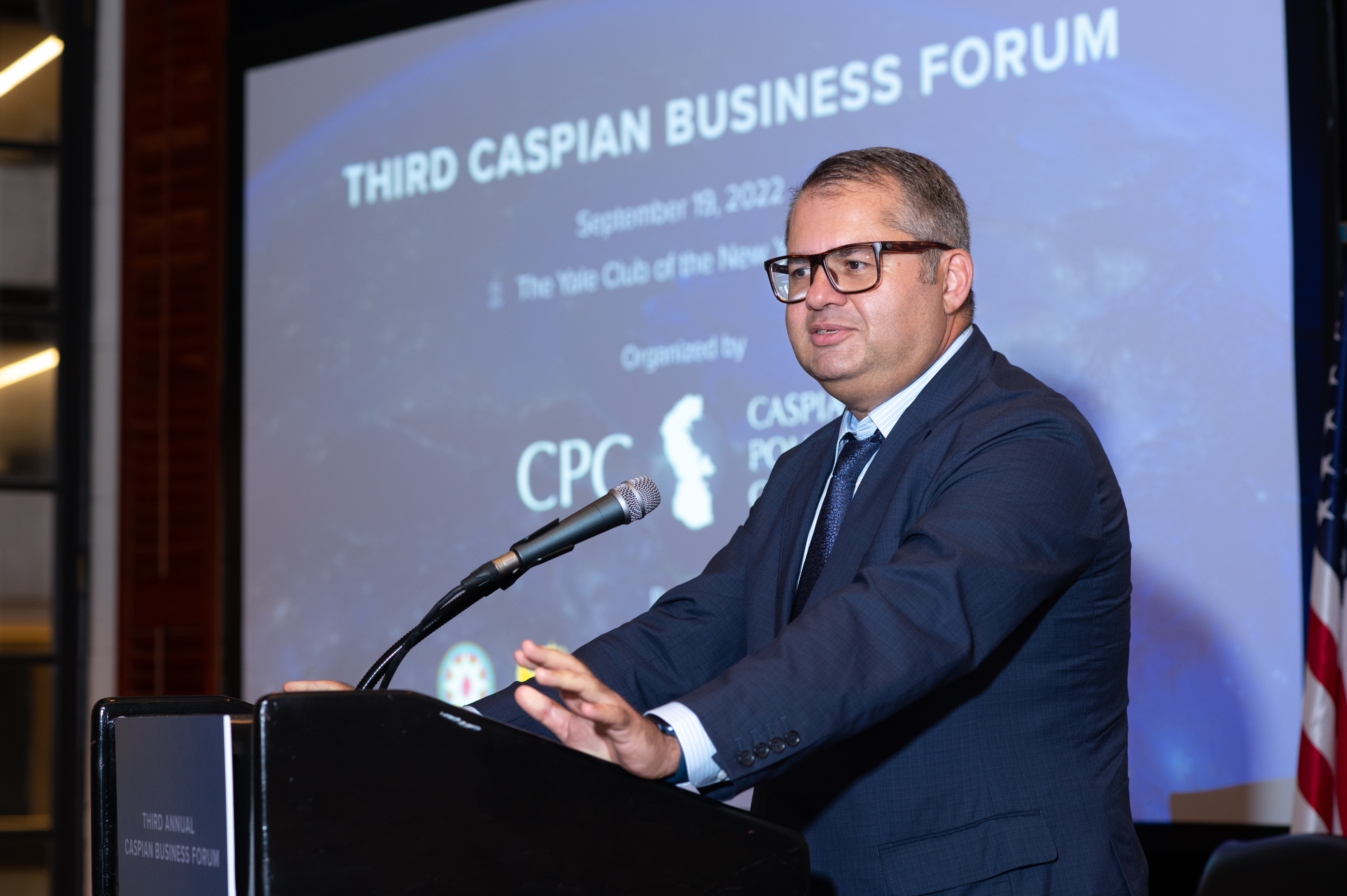
H.E. Khazar Ibrahim, Ambassador of Azerbaijan to the United States